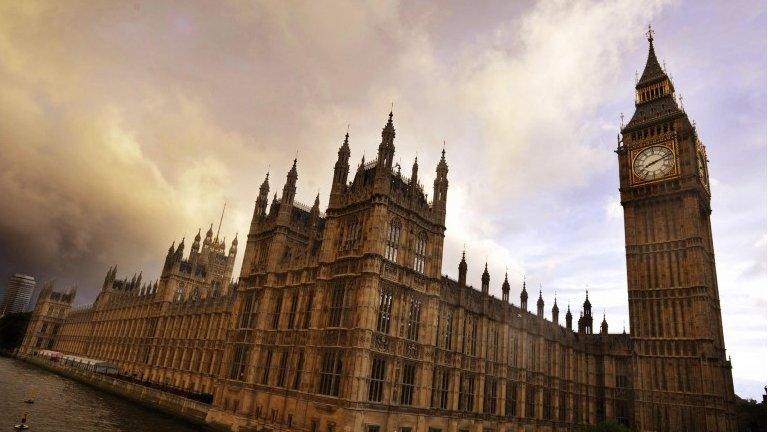UKIP rocked by Nigel Farage leadership row
- Published
When a reporter asked if he was considering his position, Nigel Farage replied: "Are you watching Question Time tonight?"
A row has erupted at the top of UKIP over Nigel Farage's future, prompting the departure of two senior advisers.
Matthew Richardson quit the party after MEP Patrick O'Flynn claimed Mr Farage had fallen under the influence of "inexperienced" advisers.
Mr Farage's chief of staff, Raheem Kassam told the BBC he was not quitting but the party later said he had gone.
Mr O'Flynn wrote in a Times article, external that Mr Farage had become a "snarling, thin-skinned, aggressive" man.
The MEP and UKIP economics spokesman said that the UKIP leader had moved away from being a "cheerful, ebullient... daring" politician.
'Political hero'
And he said some around Mr Farage "would like to take UKIP in the direction of some hard-right, ultra-aggressive American Tea Party-type movement" and risked turning the party into a "personality cult".
But Mr O'Flynn later clarified that he was not planning "some kind of coup" against Mr Farage, who he said was his "political hero" and should remain leader.
Mr Farage stood down after failing to win the South Thanet seat in the general election, but was reinstated three days later when the party refused to accept his resignation.
Mr O'Flynn's article has sparked a bitter row at the top of of the party over whether Mr Farage should continue. It has led to claims MEPs are under pressure to publicly support the leader and put the role of Mr Farage's advisers under the microscope.
Patrick O'Flynn: "We've seen too much aggression"
BBC political correspondent Robin Brant said Mr Kassam had told him that he was not resigning but that when his departure was confirmed, it appeared UKIP had sacked him.
However, Mr Kassam later tweeted that his contract with UKIP had been due to expire at the end of the month and that he was on holiday until then.
He told Sky News that Mr O'Flynn should consider his position as UKIP economic spokesman, arguing: "You cannot go to a national newspaper and air internal party grievances... It is wholly unprofessional."
A slew of UKIP supporters, donors and members, past and present, have waded into the debate over Mr Farage's role.
Businessman Arron Banks, who gave UKIP £1m last year, told the BBC that Mr Farage had "given his all" to building UKIP and he "deserved a rest rather than petty squabbling from lesser people".
Deputy leader Suzanne Evans said Mr Farage had her "full support".
But party treasurer Hugh Williams, UKIP donor Stuart Wheeler and ex-UKIP MEP Godfrey Bloom all suggested the party leader should go.

Analysis by political correspondent Robin Brant
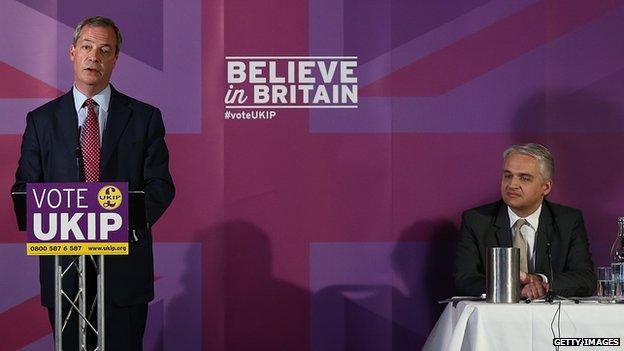
UKIP economics spokesman Patrick O'Flynn, right, said he wanted Nigel Farage to remain leader
There is now a very clear divide at the top of UKIP. On one side there is Patrick O'Flynn, Douglas Carswell and another senior official who was prominent during the election campaign.
On the other side is Nigel Farage, a tight circle of senior aides and the millionaire donor Arron Banks.
The key moment that led to this was the leader's decision to stay on.
Mr Farage said he was "persuaded" by "overwhelming" evidence from UKIP members that they wanted him at the top.
It surprised some, including the party's only MP, Mr Carswell. It's what lies behind Mr O'Flynn's claims that UKIP could be seen as an "absolute monarchy".
The dispute is now very public and very nasty. Close allies of Mr Farage have used unprintable four and five letter words in texts to me to describe Mr O'Flynn and Mr Carswell.
All this just days after the party amassed four million votes in the general election and installed itself as the challenger to Labour in the north of England.

A senior UKIP source told the BBC Mr Farage's decision to remain leader without a contest was "a tragedy of self destruction".
The source added that Mr Farage's authority risked "draining away" without a contest. He compared it with the plight of Gordon Brown after he was elected Labour leader without a contest.
Taxpayers' money
Meanwhile, the BBC's assistant political editor Norman Smith has said that supporters of Mr Farage had been accused of "forcing" the party's 22 MEPs to sign a letter backing the UKIP leader.
He added that one MEP said they were left in no doubt that if they did not sign, their careers would suffer.
Mr Bloom has called for the party to make Mr Carswell its new leader.
This fresh attack on Mr Farage comes amid a separate row after Mr Carswell resisted pressure from the party to claim £650,000 of taxpayers' money to fund up to 15 additional members of staff.
In a meeting with Mr Farage, Mr Carswell refused to budge from his position on the funds, which are available from public Short money allocated to opposition parties to help cover their parliamentary costs.
Mr Carswell said he did not need such a staff and suggested it would be improper to accept so much money.
- Published13 May 2015
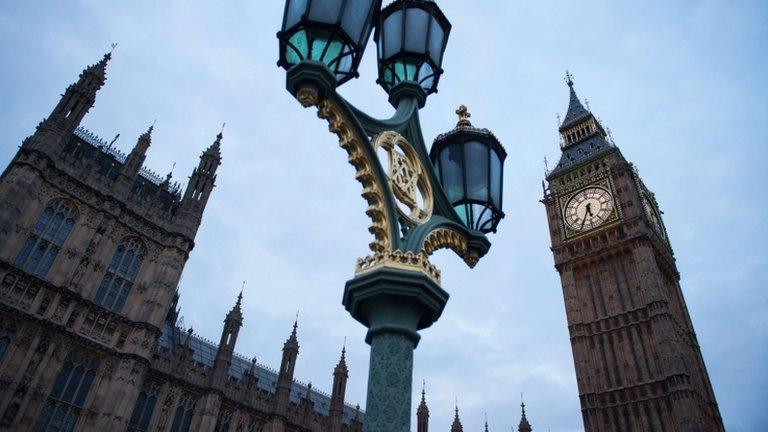
- Published14 May 2015
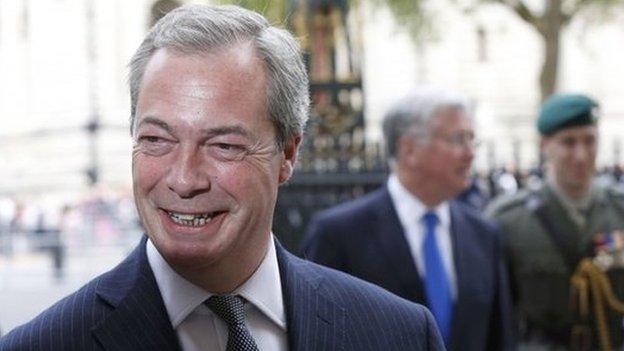
- Published13 May 2015
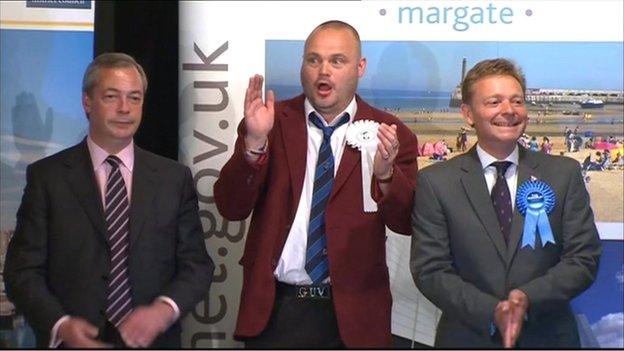
- Published14 May 2015
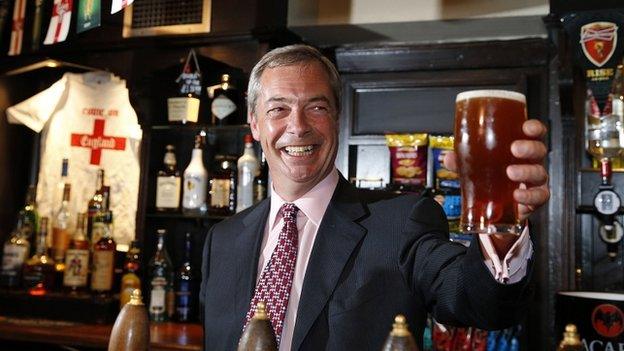
- Published13 May 2015
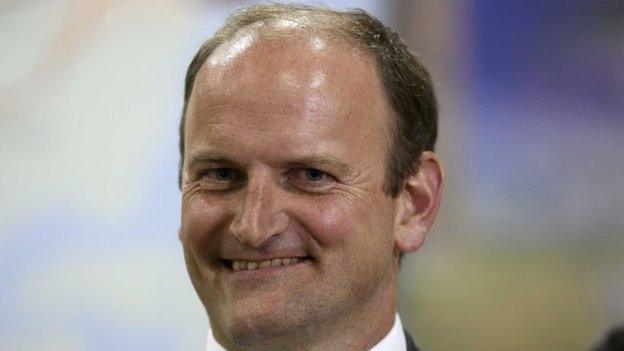
- Published11 May 2015
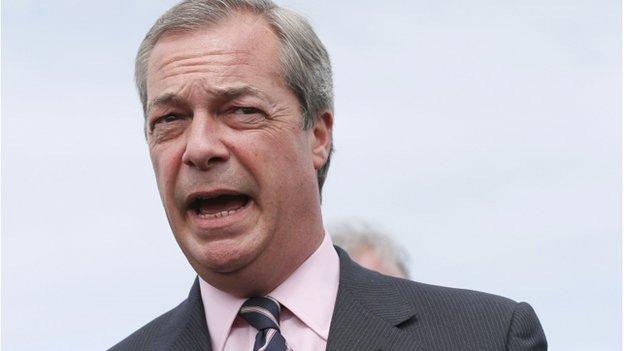
- Published8 May 2015
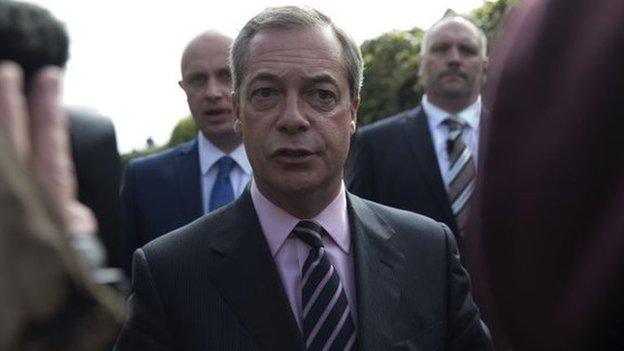
- Published13 May 2015
